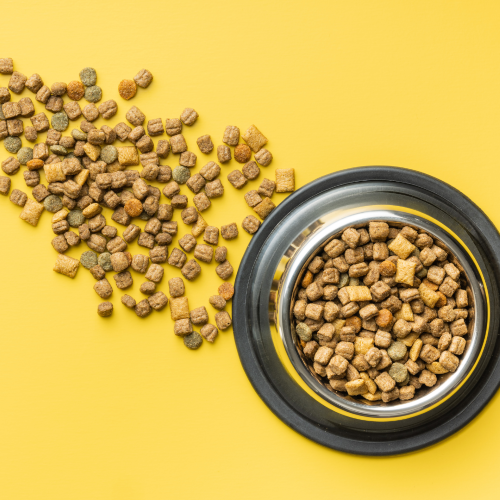Hydrolysed Diets for Dogs: The Best Solution for Food Allergies & Sensitivities
If your dog suffers from food allergies or intolerances, your veterinarian or canine nutritionist may recommend a hydrolysed diet. But what exactly is a hydrolysed diet, and how can it benefit your pet? In this guide, we’ll explore how hydrolysed diets work, their benefits, and a comparison of top brands to help you make an informed choice.
What is a Hydrolysed Diet for Dogs?
A hydrolysed diet is a specialized prescription dog food where proteins are broken down into smaller components (peptides) through hydrolysis. This process alters the protein structure so that the immune system does not recognize it as an allergen, helping to prevent allergic reactions.
Hydrolysed diets are commonly recommended for dogs with:
Food allergies: Immune reactions to specific proteins such as chicken or beef.
Food intolerances: Non-allergic adverse reactions to certain ingredients.
Gastrointestinal conditions: Chronic digestive issues like inflammatory bowel disease (IBD).
How Does a Hydrolysed Diet Work?
When a dog is allergic to a particular protein, their immune system reacts by triggering symptoms like itching, skin inflammation, vomiting, and digestive distress. Hydrolysis breaks down these proteins into tiny fragments that are too small for the immune system to detect, significantly reducing the risk of an allergic response. This can help manage symptoms while the root cause of the allergy is identified.
Additionally, hydrolysed diets are often formulated to be highly digestible, making them a suitable option for dogs with sensitive stomachs or chronic gastrointestinal conditions.
Top Hydrolysed Dog Food Brands
Several reputable brands offer hydrolysed diets tailored to different needs. Below is an overview of the most popular options:
1. Royal Canin Hydrolysed Protein Veterinary Diets
Royal Canin’s hydrolysed formula uses hydrolysed soy protein to minimize allergic reactions. It also includes omega-3 fatty acids and prebiotics to promote healthy skin and digestion.
Pros: High-quality ingredients, available in wet and dry formulas, promotes skin and gut health. Also available in low fat as well for dogs that may require a low fat diet who also have intolerances/allergies
Cons: Higher cost than non-prescription diets, some dogs may not enjoy the taste.
Best for: Dogs with both skin and digestive symptoms of food allergies.
2. Hill’s Prescription Diet z/d
Hill’s z/d formula contains hydrolysed chicken liver as its primary protein source and is enriched with essential nutrients like vitamin E and omega-6 fatty acids for skin and coat health.
Pros: Clinically proven to reduce food allergy symptoms, available in wet and dry options.
Cons: Chicken-based, which may not be suitable for dogs allergic (not intolerant) to poultry.
Best for: Dogs with food sensitivities and chronic skin conditions.
3. Purina Pro Plan Veterinary Diets HA Hydrolyzed
This formula features a single hydrolysed protein source (soy protein isolate) and low-allergen carbohydrates, making it an excellent choice for elimination diets.
Pros: Ideal for food trials, gentle on digestion.
Cons: Limited ingredient variety, some dogs may dislike the taste.
Best for: Dogs undergoing elimination diets or with moderate allergies.
4. Blue Buffalo Natural Veterinary Diet HF (Hydrolysed Food)
Blue Buffalo’s hydrolysed formula uses salmon as its protein source and is grain-free, catering to dogs with grain sensitivities.
Pros: Natural ingredients, antioxidant-rich, grain-free.
Cons: Limited availability world wide, not suitable for dogs allergic to fish.
Best for: Dogs with common protein allergies and grain sensitivities.
Choosing the Right Hydrolysed Diet for Your Dog
Selecting the right hydrolysed diet should be done in consultation with your veterinarian or canine nutritionist. Some dogs may need an elimination diet trial to determine the best food for their specific condition. During this trial, your dog will be fed a hydrolysed or novel protein diet for several weeks to observe any improvements in symptoms.
Benefits of a Hydrolysed Diet
Hydrolysed diets offer numerous benefits for dogs suffering from food allergies and digestive issues:
Minimizes allergic reactions: By breaking down proteins, hydrolysed diets prevent immune system responses.
Supports digestive health: These diets are designed to be easily digestible, making them ideal for dogs with IBD or other gastrointestinal conditions.
Complete and balanced nutrition: Despite protein hydrolysis, these diets still provide all essential nutrients.
Final Thoughts
Hydrolysed diets are a scientifically backed solution for managing food allergies, sensitivities, and digestive problems in dogs. Brands like Royal Canin, Hill’s Prescription Diet, and Purina Pro Plan offer a range of high-quality options tailored to different dietary needs.
However, hydrolysed diets are not the only approach to managing food allergies. If you suspect your dog has intolerances, speak to your veterinarian or a canine nutritionist about alternative elimination diet options. By understanding how hydrolysed diets work and consulting with professionals, you can make the best choice for your dog’s health and well-being.
Peer-Reviewed Studies and References
Verlinden, A., Hesta, M., Millet, S., & Janssens, G. P. (2006). Food allergy in dogs and cats: A review. Critical Reviews in Food Science and Nutrition, 46(3), 259-273.
Olivry, T., & Bizikova, P. (2010). A systematic review of the evidence of reduced allergenicity and clinical benefit of food hydrolysates in dogs. Veterinary Dermatology, 21(1), 32-41.
Jackson, H. A., & Hammerberg, B. (2002). Evaluation of a soy protein-based hydrolyzed diet for the management of dogs with food allergy. Journal of the American Veterinary Medical Association, 220(11), 1596-1599.
Roudebush, P., & Guilford, W. G. (2009). Food hypersensitivity in dogs and cats: A review and report of 43 cases. Journal of the American Animal Hospital Association, 45(1), 14-22.
If you have more questions, don’t hesitate to reach out! With our expert guidance, you can tailor a diet that supports your dog’s unique needs—helping them thrive from the inside out. Does your dog struggle with weight after spaying or neutering? GET A FREE DIET ASSESSMENT today to get started.

